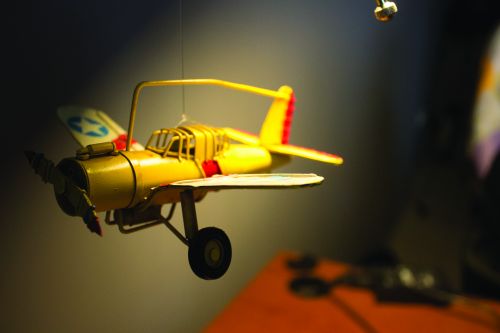Last Word | December 6th, 2017
 By Matthew S. Lynch
By Matthew S. Lynch
matthew@aviationacrossamerica.com
Agriculture is critical to the economy of North Dakota. Today, about 90% of the state’s land is used for agriculture, with 40 million acres devoted to farming and ranching. Nearly a quarter of the state’s population is employed in the agricultural sector.
To help produce the food that fuels the nation, many farmers depend on aircraft to provide aerial application services, survey land, transport tools, and get to multiple plants and locations in a day. The truth is that aviation is often the 'behind the scenes' tool for businesses and farms to stay connected and profitable.
We have 80 public-use airports across our state so that means that our runways are often just as important as our highways -- and a lot of jobs depend on this activity and network of airports.
Especially for many smaller towns across the state, public airports serve as the lifeline to opportunity. Our local airports are used by business leaders, air ambulance services, young women training to become pilots, and aerial agriculture pilots who contribute to the growth of our great state. And for companies looking to grow and establish plants and businesses, having an airport nearby is crucial to keeping jobs in our state.
However, legislation in the House of Representatives is a threat to this way of life, proposing to separate our air traffic control system from congressional oversight, handing it over to a board of private stakeholders largely dominated by the big commercial airlines.
Under such a system, the airlines would be able to make decisions about where infrastructure investments are made within our vast national network of over 3000 airports.
We can guess how airports in North Dakota would stack up next to the biggest commercial airline hubs. The big airlines have a long track record of favoring more profitable routes between large hub cities, relegating service to smaller airports. In fact, in the last ten years or so, service to small and mid-sized airports has decreased by more than 20 percent.
It’s also true that, like our national defense, our air traffic control system is one of the things that should be overseen by our federal government, so we ensure we retain service to communities big and small, and ensure that our system doesn't just serve the biggest customers.
The airlines claim that they and other private interests can run air traffic control better, but mind you, the big airlines can’t get through a month without a customer service fiasco or a computer problem that causes major delays for travelers.
I would much rather place my trust in a system that is accountable to the public through its elected officials than count on the airlines and other private interests. For those of us in places like North Dakota, access to aviation is just too important to risk.
I hope that our Congressional delegation will continue to provide all North Dakotans this critical access that serves our businesses, farms, and communities.
[Editor’s note: David Gust is past President of the North Dakota Agricultural Aviation Association.]
January 15th 2026
January 15th 2026
December 18th 2025
November 18th 2025
September 23rd 2025

__293px-wide.jpg)
_(1)_(1)_(1)_(1)_(1)__293px-wide.jpg)
_(1)_(1)_(1)_(1)_(1)__293px-wide.jpg)
__293px-wide.png)
